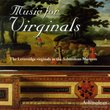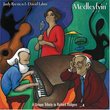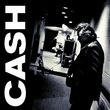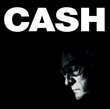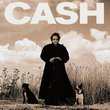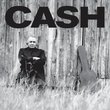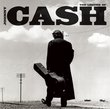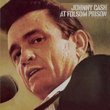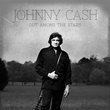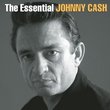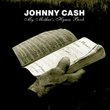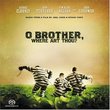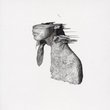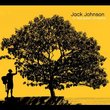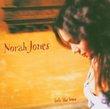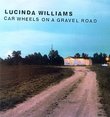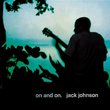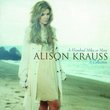| All Artists: Johnny Cash Title: American V: A Hundred Highways Members Wishing: 3 Total Copies: 0 Label: Lost Highway Original Release Date: 1/1/2006 Re-Release Date: 7/4/2006 Genres: Country, Pop Styles: Americana, Classic Country Number of Discs: 1 SwapaCD Credits: 1 Other Editions: CASH, JOHNNY - AMERICAN V : A HUNDRED HIGHWAYS UPCs: 602498626962, 0602498626962, 0602517183018, 602517026247 |
Search - Johnny Cash :: American V: A Hundred Highways
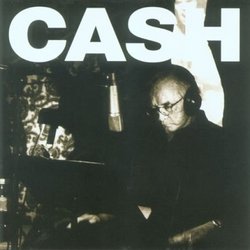 | Johnny Cash American V: A Hundred Highways Genres: Country, Pop
Out of print in the U.S. Originally released in 2006, American V: A Hundred Highways was the first of his successful American Recordings series to be released after his 2003 death. The album is a continuation of the highly... more » |
Larger Image |
CD DetailsSynopsis
Album Description Out of print in the U.S. Originally released in 2006, American V: A Hundred Highways was the first of his successful American Recordings series to be released after his 2003 death. The album is a continuation of the highly popular and critically acclaimed series of American recordings produced by Rick Rubin. The series began with 1994's acclaimed American Recordings, followed by Unchained (1996), American III: Solitary Man (2000) and American IV: The Man Comes Around (2002). Recording for this album began in 2002 and continued through 2003 until shortly before his death. American V contains 12 tracks and includes one Johnny original, 'Like The 309' (the last song that Johnny wrote and recorded before he died). Similar CDs
Similarly Requested CDs
|
CD ReviewsAlone K. H. Orton | New York, NY USA | 07/05/2006 (5 out of 5 stars) "I'm appreciative of the one reviewer so far who didn't give this an obligatory 5 stars, and suspicious of those that did. So why the full 5? Because, this is one of the most quietly, powerful albums I've heard all year & because it's so personal sounding. To these ears, each American album had something to set it apart from the others & if I were to characterize this (hopefully) latest installment, I'd say A Hundred Highways is the most lonesome sounding of the lot. The sound of a man alone. Stripped of youth, health & any illusions. All of the records in this series could be considered sparse in terms of production & accompaniment. Producer Rick Rubin acts more like a still photographer trying to capture the moment, rather than pull any strings. Which is one reason why they've all been good. He just let Cash be Cash. And in terms of all their previous work together I have to say, Highways is the most low key. It's also one of the most initimate. No Fiona Apples moaning in the background. No flashy covers like "Rusty Cage" or "Hurt". No frills at all. Just that voice & maybe a little acoustic guitar & organ. As he's so often proved, Rubin has good taste & this album is a far cry from some sort of open casket funeral. "Help Me" starts things off & the fragility in Cash's voice cannot be denied. For some this isn't easy to take. The song is a plea & the end result is more heartbroken than desperate. "God's Gonna Cut You down" is easily the most rousing number on the album & Cash's voice comes across like thunder that is soon to die down in the distance. As many have pointed out "309" is the last song he wrote. As any fan knows, The Man In Black was fond of train songs & it serves as a fitting epitaph, completely void of any self pity. It's a song about acceptance rather than resistance. One listen to the Hank Williams cover, "Evening Train" & its not hard to tell what inspired it. Perhaps Cash tossed in his own version just to point that out. Where Americans III & IV feature covers from the likes of Nine Inch Nails & Depeche Mode, any attempt to reach a new fan base is laid to rest in choices like "Read My Mind" & "Four Strong Winds". Gordon Lightfoot's classic is typical AM fare while "Winds" is mostly familiar to fans of Neil Young. For my money, Cash steals them both for his own, bringing a gravitas that lends each a new meaning. And though I'm not a particularly a Springsteen fan, he's always seemed tailor made for Cash. Further Up The Road ranks up there with his classic take on Highway Patrolman. As for things like, "Rose Of My Heart", the conviction of Cash's delivery puts to rest any fears of Hallmark sentimentality. As the song self-depricatingly suggests, Cash was indeed a "legend in his time "& this album is best thought of as a quiet, meditive coda to a career that began with the immortal line," I shot a man in Reno just to watch him die". True, the ravages of illness are apparent & some people just won't be able to get beyond that. But if you're able to, you'll be rewarded." Tell the Rambler, the Gambler, the Back Biter... Eddie Lancekick | Pacific Northwest | 07/04/2006 (5 out of 5 stars) "Johnny Cash's American discography posthumously continues as his fans are treated to "American V: A hundred highways". The difference between this recording and his other late in life gems that he recorded on the American label are two distinct things. One is some of the guitar work, which seems on some songs to flow and be a tad more melodic compared to the plunking folk influenced type sound we were treated with on the earlier albums. The second is the fact the last song he recorded, titled "Like the 309" is on this album. Johnny Cash was already a legend by the time I was born in 1975, but despite my late enjoyment of his earlier recordings, I've found these last ones he did on the American label to be even more enjoyable. Cash's age does show in his voice, but it wasn't his voice as much as his songwriting, themes, and overall spirit that touched us. If your waiting to wail on someone who's voice is starting to falter compared to their past vocal performances, go review Sammy Hagar or Ozzy Osborne in a couple of years. This album is a little bit of a goodbye from Cash but at the same time it's a culmination of the powerful themes and images that he evokes through his music. I said earlier that this albums guitar work is less folk and more mainstream. However, don't be fooled, this album, along with some of the earlier "American" releases, is every bit a modern day folk slinger. Hanging on to a past he could never outrun, and heading into a future that would be without him here on Earth, Cash sings of his wife on more than one occasion, and for the most part keeps us in his world of love, love loss, thoughts on God, and trains breaking the silent countryside as they barrel down the track. Track 1 is a beautiful, melodic guitar based song that is called "Help me". Help me has Cash, who never had much respect for "middle men", talking directly to god as he pleas for strength during a time when the world was slowly going away. Not so much a religious tune as much as a spiritual coming of age that is heartfelt from Cash. Track 2 continues with the theme of God, only on a much harsher scale. This is where we really remember Cash. He's stoic in execution and serious in tone. "Gods gonna cut you down" has Cash singing to a simple acoustic plunk as his voice quickly finds more strength and speed as he warns the outlaws around him of the message he gets from the man above: "Go tell that long tongued liar/go tell that midnight rider/tell the Rambler, the Gambler, the..Back rider/tell them that gods gonna cut you down." "Like the 309" is the last song Johnny Cash recorded and of course is a simple tune that has him happily singing along about the end of his days and putting his coffin on the "309" train. The guitar work on this particular tune is heavily and heavenly bluesy as it backs up the story of some old train heading out in the days when trains wailed, mosquitoes were thick, and life's end came only after a hard and battle ridden journey. They didn't end up putting Johnny on the 309, but we know every time we see a locomotive rolling along the tracks that we can't help but think of him. One thing that was actually quite pleasant about the American recordings continues with this album. Cash does covers that have ranged from modern day rockers like nine inch nails and Soundgarden to this, track four, which is the Gordon Lightfoot song "If you could read my mind". Hearing Cash sing it is fitting as the lyrics as well as the atmospheric tones evoke many moods for the listener. Truly a beautiful song and one of the best ones on the album. We get another cover with track six and it is the Bruce Springsteen song "Further on up the road". The song is heavy on the lyrics and songwriting and though isn't an extremely memorable track, its still very enjoyable coming from Cash on this album. Track 6 is "on the evening train" and is a soft, emotional tune that again brings out Cash's vocals in more of a wise man storyteller as opposed to a singer. Great acoustic guitar work on this tune and though like many of Cash's songs, it is sad in theme but more of a powerful message as opposed to "country sap". This song was also a cover, as the original was done by fellow country music legend Hank Williams. Track 7 is an original by Johnny and bogs down more into a traditional slow, sorrowful sound with Cash's vocals getting slow and low as he broods along about discovering, losing, and discovering god again. Some would think knowing many of his sins that his songs about God might be hypocritical, but on the contrary, he's not preaching, he's telling a story. God was an important part of his life early and late in life, and Cash's songs span his entire journey when sometimes he was with god, and sometimes he was not. Track 8 gets us back to a more contemporary feel with some almost Spanish guitars that kind of remind me of country legend Marty Robbins in his day. This time Cash has some great lyrics as he talks about girls that have touched the writer's life (I don't believe Cash wrote this song or is talking from personal experience on this one). "Loves been good to me" is a fun song that spans seasons as well as cities in its lyrics. Track 9 is "A legend in my time" and is just Cash singing along in a happier mood about how he "might" have been a legend..."if they gave gold statuettes/for tears and regret/I'd be a legend in my time." A great song that is fitting sang by the legend that we all know as Johnny Cash. Track 10 is "Rose of my heart" is a great modern day sounding ballad that is a beautiful ode to a loved one. His daughter Roseanne? Wife June? Perhaps everyone who touched Cash along his journey feels this song can be a tribute to them, as he was to all that loved him. Track 11 is "four strong winds" and is a good song to help wind down this 12-track album down with. It's got simple and soothing acoustic parts that blend well with Cash's voice as he soothingly tells a story that seems of another time and another place. Track 12 is "I'm free from the chain gang now" and starts out with Cash talking of getting rid of shackles and guards as he ends the album singing somewhat of his life while at the same time talking of what he did so well, to tell the story of someone that was perhaps wrongly accused of something and paying the price by being behind bars. Prison bars, Barreling trains, Love, God and journey of life. That is the Johnny Cash we know, and the one we love, and its all right here on American V. A perfect CD to enjoy on the fourth of July as you sit out on the back porch of your friends house in your hometown drinking ice tea and watching kids run and play in the grass. Above are birds free in flight, and in the background, if you listen closely, you can hear a train..." Goodbye June, Goodbye Johnny... Timothy W. Beeker | Dayton, Ohio USofA | 07/07/2006 (5 out of 5 stars) "It's a bit hard to talk about this album. If you want to hear a tired old man singing, then, by all means, buy this album and you may only listen to it once.
If you want to hear from a man who was in love and had a truly broken heart, then listen to Johnny sing to June. I'd dare say that you'd not get past "On The Evening Train" without being moved. The heart of the man was broken in more than one way. Listen to him sing to and about the Lord. While you're listening, remember Johnny's life and all that went with it. Then, project the thoughts of some of these songs onto yourself and be glad that you have the foresight of his life. Some of the lines in these songs speak in a powerful way that they would not speak, if anyone other than Mr. Cash sang them. I looked at myself, when the clapping and stomping finally ended in "God's Gonna Cut You Down." I could see myself, to some degree, in many of the characters that he sang about in that song. It was not a pretty sight. But, I take this as help from both the man and the Spirit that led him. I've been trying for a very long time now to try to seperate body, soul and spirit into definable parts. This album helped me to do this in a way that I've never been able to do before. Mr. Cash was old and tired. His body was feeble. If you've read anything at all about the album and how it came to be, and then listen to it, you'll have no doubt that he was tired. I believe that his soul had been ravaged (by his own actions) and then redeemed again (through June's love) and finally broken by June's death. You cannot escape these thoughts on this album. The Spirit that I hope led him through these songs, especially the spirituals, is the motivating entity that sparked both his soul and his body to go through the rigors (not only physical) to accomplish the songs on this album. He must have been so very tired at the end of some of these. I've read a lot about his breath and the strength of his voice being noticable in varying degrees in these songs. It is true. And it adds all that much more character to the album. I was under no illusions when I bought this CD. I was not expecting anything in regards to great and wonderful vocals. What I was after, though, was the heart of the man. I think that this CD delivers Mr. Cash's final days and feelings right into our own bosoms. Do not listen to this album when you are easily distracted. Don't. Listen to it when you have the time to dwell on his words. Listen to it when you have time to dwell on his voice. Listen to it when you have the time to listen to what might be spoken to your own soul at the time. Most albums I've ever bought, I've bought simply to listen to and to try to enjoy on an elementary level and perhaps escape the things of life, for a bit. Don't get this album if you are wanting an escape from life. It will hit you square in the face, from a man who has lived his life and run his race. As you listen to the last track on this album You can almost hear Mr. Cash saying that all is done. When you hear the last note being played, reflect for just a moment on what you've just heard. If you're like me, you'll have sit and listened to the whole album straight through and at the end, you'll be sad, but still have a smile on your face. Yes Mr. Cash, you are free from the chain gang now. Give June a kiss for all of us." |

 Track Listings (12) - Disc #1
Track Listings (12) - Disc #1